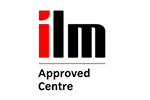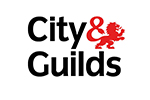Recognise and Accepct Where You Are Now
- Self-Assessment: Identify your strengths, weaknesses, skills, and areas for improvement. This introspection helps define goals for development.
- Set Clear Objectives: Establish specific, measurable, achievable, relevant, and time-bound (SMART) goals. These goals should align with your career aspirations and the organization's needs.
- Identify Development Areas: Determine the skills, knowledge, or competencies you need to develop to achieve your goals. This could include technical skills, soft skills, industry-specific knowledge, or leadership abilities.
- Create a Development Plan: Outline a plan detailing how you'll acquire or enhance the identified skills. This might involve workshops, courses, mentoring, on-the-job learning, or reading relevant literature.
Commit To Moving Forward & Get Support
- Seek Learning Opportunities: Actively seek opportunities for learning and growth. Attend seminars, workshops, webinars, or conferences. Explore online courses, certifications, or further education programs.
- Utilize Company Resources: Many organizations offer resources for professional development, such as in-house training, mentoring programs, or tuition reimbursement. Take advantage of these resources.
- Practice Continuous Learning: Embrace a mindset of continuous learning. Engage in self-study, read industry publications, listen to podcasts, or participate in online forums to stay updated.
- Apply Learning in the Workplace: Implement new knowledge and skills in your daily work. Experiment with what you've learned and seek feedback to improve.
- Reflect and Evaluate Progress: Regularly evaluate your progress against your development plan. Reflect on what you've learned, how it has impacted your work, and make adjustments as needed.
- Seek Feedback: Request feedback from colleagues, mentors, or supervisors. Constructive feedback helps identify areas for improvement and validates your progress.
- Networking and Collaboration: Engage with colleagues, industry professionals, or mentors. Networking allows for knowledge sharing, learning from others, and potential collaborations or opportunities.
- Adapt and Evolve: Embrace change and be adaptable. Industries evolve, and skills requirements may change. Stay flexible and open to new learning experiences.
Helping You Realise Your Potential
Increasing Your Strategic Thinking
Helping You To Identify Your Existing Strengths & Areas To Improve
Access to Experienced Trainers & Mentors To Share & Develop Ideas
Network With Colleagues To Collaborate & Innovate
Flexible Course Delivery To Suit Your Commitments
Accreditation By Internationally Reconised Bodies
Develop Understanding Of Effective Management Tools & Techniques
Membership of Professional Bodies
Support when you need it
From getting started to right through to final certification, we’re here to support you through the whole process, ensuring you and your business prosper.
A tailored approach with you in mind.

